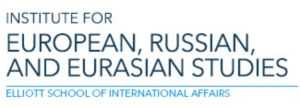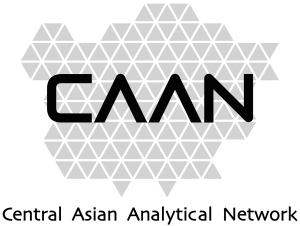By Alexey Ulko for MOZAIKA
In the last few months, the flagship of Uzbek contemporary art, the Mark Weil Ilkhom Theatre has been in danger. Why is its very existence threatened by the rise of new elites in Uzbekistan?
If there has been one truly international art institution in Uzbekistan, it has to be the Ilkhom Theatre, the first independent theatre in the Soviet Union, founded in Tashkent by the visionary director Mark Weil in 1976. By now its history and significance for the cultural life of Uzbekistan has been cut in stone.

Located in the basement of a concrete Soviet modernist building with two abandoned floors above it, the theatre is commonly referred to as ‘a sanctuary of free speech in a land best known for political oppression’, known for ‘performances that spoke, often with subtle political zing, about issues affecting ordinary Uzbeks.’ But the real story is much more complex than that. Nothing illustrates that story better than the developments following the assassination of Mark Weil in 2007, ostensibly by religious fanatics who took offence at the treatment of Islam in some of the plays performed at Ilkhom.
Weil was a master of cross-cultural adaptation and hybridization. He boldly and cleverly mixed different languages and genres onstage, making plays by Brecht and Gozzi, Bulgakov and Pushkin look local and fresh, challenging and exotic at the same time. Although his most ground-breaking productions, such as The Imitation of the Quran, Zeal with Pomegranate, Oresteya openly explored issues of religion and homosexuality, the theatre’s core audience has always been the city’s conventional Russian-speaking intelligentsia whose artistic tastes were formed by Soviet acculturation in the 1970s-1980s. The post-Soviet imperative to produce, or at least to refer to, the rather anachronistic notion of ‘Uzbek national art’ has never been Ilkhom’s priority. After Weil’s untimely death, the new management struggled to maintain the same level of personal charisma and have had to improvise in order to survive. Their attempts to transform the theatre into a center for contemporary arts have been seen by some within the theatre and its core audience as dangerous deviations from a well-trodden path.

One may wonder whether Ikhom’s cultural eclecticism has been forced by the contradictory demands made by official and informal bearers of a modernist nationalist agenda, elitist neo-colonial Russian culture and post-modern fragmented globalism.
Zukhra Kasimova and Madina Tlostanova have celebrated contemporary Uzbekistan’s cosmopolitan hybridity because it ‘allows one to part ways with rigid binary oppositions.’ However, as I have argued elsewhere, multiple cultural identities in Central Asia are very much structured in terms of binary oppositions. Those binaries are, of course, not reducible to one major colonial dichotomy of ‘us’ vs. ‘the other’ only complicates the matter, and in that way, they remain potentially disruptive. The recent events around Ilkhom have perfectly exemplified (and exacerbated) the not-so-deeply buried conflicts between them.

On 7 February 2020, Ilkhom’s management received a letter from the property-development company Ofelos Plaza informing them that the theatre would have to vacate the premises it had used without charge for 44 years. The stated objective of the eviction was ‘the reconstruction’ of the building and its subsequent conversion into a six-story business center. As Sarah Heywood neatly put it, ‘Uzbekistan’s cultural elite was left reeling’ and a campaign #SaveIlkhom was launched to attract the attention of eminent artists, politicians and diplomats to the theatre’s plight. The attack on Ilkhom was unexpected and its real authors are shrouded in obscurity. Irina Bharat, the theatre’s deputy director, has said that no one at the theatre knew that the premises had been sold to a private owner. For a short moment, the impending eviction was seen as a straightforward clash between ‘high culture’ and ‘wild capitalism’ emboldened by support from the authorities trying to boost the country’s stagnated economy.

The details that emerged soon after the interests of the new property owners were seemingly reconciled with those of the theatre’s management, however, painted a different and more complex picture. The investigative journalist Alexey Volosevich discovered that the property developers are closely linked with the Uzbek President’s eldest son-in-law, Oybek Tursunov, a character with a shadowy past, dodgy connections and exemplary nouveau-riche tastes and manners. Volosevich has demonstrated that the ‘settlement’ between Ofelos Plaza and Ilkhom was fictitious and non-binding and that the former’s real objective had never been a ‘reconstruction’ but a complete overhaul of the theatre’s historic building. Without going into details about nepotism and crony capitalism in today’s Uzbekistan, I would like to consider why lkhom, which survived the oppressive decades of Karimov’s regime, is very likely to be completely wiped out by the current, supposedly much more open and forward-looking alliance between the state and the businesses it supports.

The surface-level answer is simple: the current ‘elite’ does not see much value in the theatre and its intimate connection with its physical and human environment, which have been so important for Ilkhom’s administration, actors and the audience. Irina Bharat insists that ‘our theatre can only exist in this environment, and that our plays have been specifically designed for this and only this stage’[1] The dramatic symbiosis between the theatre, its actors and the building is reminiscent of Edgar Allan Poe’s The Fall of the House of Usher. It reveals an important but somewhat overlooked weakness of the theatre’s precarious position. The basement, which once sheltered an experimental and daring theatre, has become a venerable public institution, a comfort zone with cherished traditions and a glorious past. Although Ilkhom eventually became an informal center for contemporary art in Tashkent, its management is keen to be perceived as non-confrontational and loyal.
In a way, the theatre’s specific elitism has become its Achilles’ heel. The roots of this weakness were spotted by Laura Adams in her insightful article Modernity, Postcoloniality and Theatrical Form in Uzbekistan: ‘Nearly every play in Ilkhom’s repertoire in the 1990s expresses the interests of Tashkent’s cosmopolitan elites who are interested in exploring their identity not as ancient and given but as hybrid and multiethnic’[2]. She notes the decline of these elites’ earlier enthusiasm for opera and ballet in the 1990s, attending performances of which ‘used to be part of the cultural capital of the Uzbek elite.’ She identifies a shift of cultural interest away from the Russian-Soviet cultural norms towards ‘national culture’ which is being increasingly re-defined through perceived international or European art forms.
Now, fifteen years on, the same fate befell the Ilkhom theater. Today’s generation of Uzbek elite does not need a marginal Russian-language theatre in Tashkent to tell them what cosmopolitan high culture is. Now it comes in the shape of Hyatt and Hilton, red carpet and catwalks, TED conferences and tourist forums.

We may all lament this development, but Ilkhom has become only one of the victims of the colossal clean-up operation in Uzbek cities where local authorities and businesses systematically destroy our urban heritage to make way for new glitzy and garish business centers and public venues for such events. This conflict is not between traditionalists and keepers of culture, but between different visions of culture cherished by the old and new generation of the elite. In order to survive the onslaught, Ilkhom either has to find a way to serve the interests of this new elite or rediscover its edge and rebel.
[1] Personal communication
[2] Adams, Laura (2005) Modernity, Postcoloniality and Theatrical Form in Uzbekistan in Slavic Review 64 no.2 (Summer 2005) p.345







